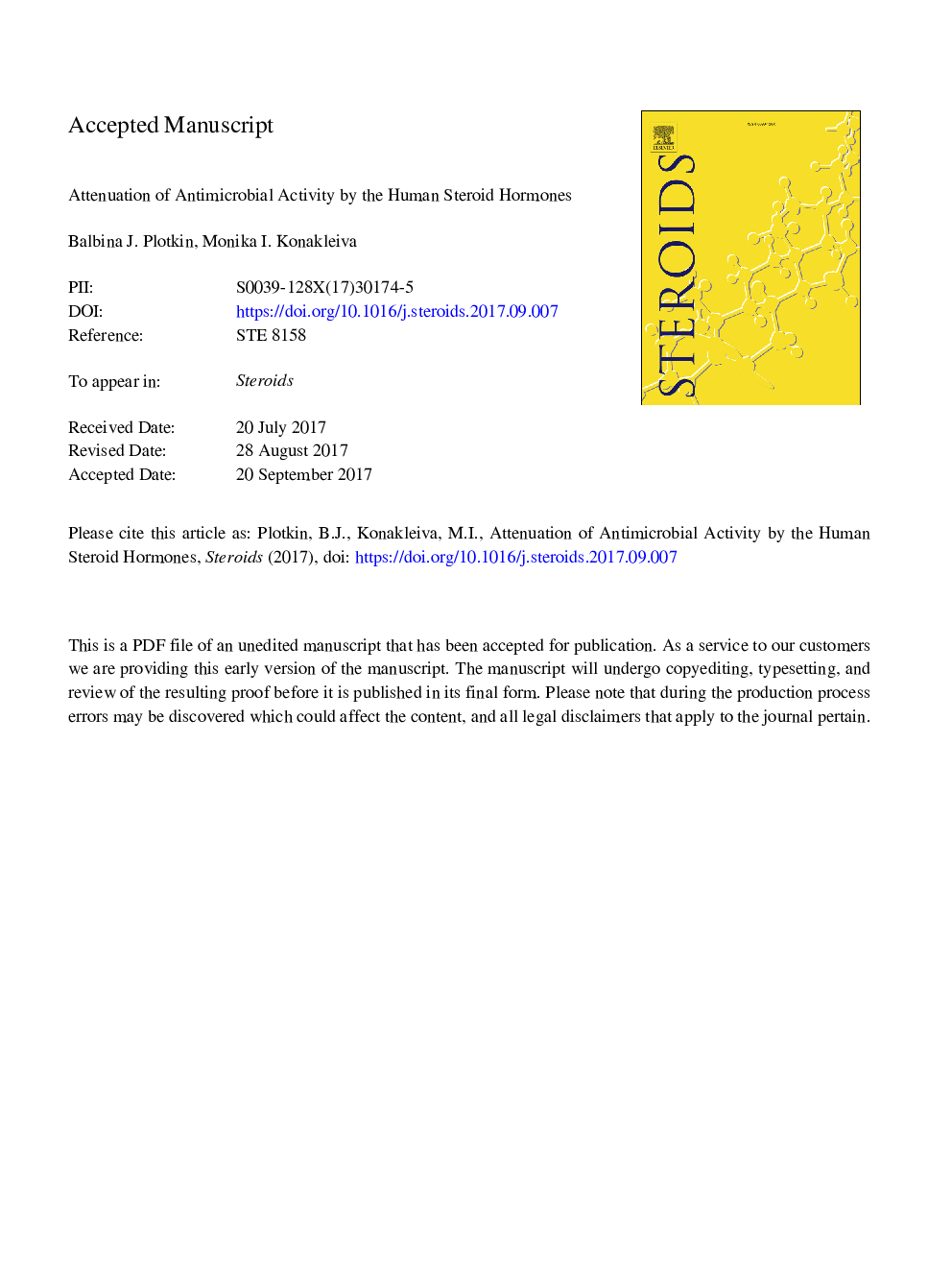| کد مقاله | کد نشریه | سال انتشار | مقاله انگلیسی | نسخه تمام متن |
|---|---|---|---|---|
| 8366653 | 1542680 | 2017 | 32 صفحه PDF | دانلود رایگان |
عنوان انگلیسی مقاله ISI
Attenuation of antimicrobial activity by the human steroid hormones
ترجمه فارسی عنوان
تضعیف فعالیت ضد میکروبی توسط هورمونهای استروئیدی انسان
دانلود مقاله + سفارش ترجمه
دانلود مقاله ISI انگلیسی
رایگان برای ایرانیان
کلمات کلیدی
موضوعات مرتبط
علوم زیستی و بیوفناوری
بیوشیمی، ژنتیک و زیست شناسی مولکولی
زیست شیمی
چکیده انگلیسی
Upon entering the human host, Staphylococcus aureus is exposed to endogenous steroid hormones. The interaction between S. aureus and dehydroepiandosterone (DHEA) results in an increased resistance to the host cationic defense peptide, β-1 defensin, as well as vancomycin and other antibiotics that have a positive charge. The increased resistance to vancomycin is phenotypic and appears to correlate with a DHEA-mediated alteration in cell surface architecture. DHEA-mediated cell surface changes include alterations in: cell surface charge, surface hydrophobicity, capsule production, and carotenoid production. In addition, exposure to DHEA results in decreased resistance to lysis by Triton X-100 and lysozyme, indicating activation of murien hydrolase activity. We propose that DHEA is an interspecies quorum-like signal that triggers innate phenotypic host survival strategies in S. aureus that include increased carotenoid production and increased vancomycin resistance. Furthermore, this DHEA-mediated survival system may share the cholesterol-squalene pathway shown to be statin sensitive thus, providing a potential pathway for drug targeting.
ناشر
Database: Elsevier - ScienceDirect (ساینس دایرکت)
Journal: Steroids - Volume 128, December 2017, Pages 120-127
Journal: Steroids - Volume 128, December 2017, Pages 120-127
نویسندگان
Balbina J. Plotkin, Monika I. Konakieva,
